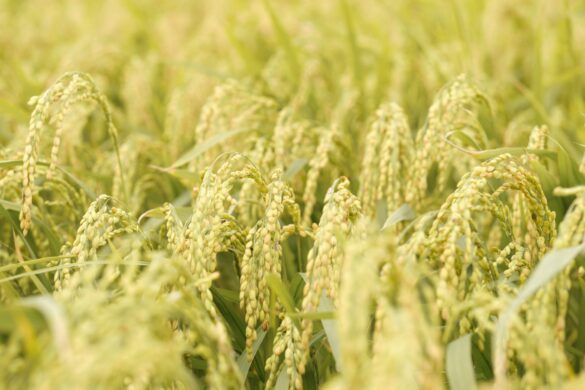Bangladesh’s recent announcement to import 9 lakh (900,000) tonnes of rice has sparked optimism among Indian exporters, especially amid concerns over stock levels and inflation management. The large-scale import plan comes as part of Bangladesh’s effort to stabilize domestic rice prices and secure adequate reserves ahead of potential natural disasters during the ongoing monsoon season. Indian rice exporters are viewing this move as a significant opportunity. Given the geographical proximity, lower freight costs, and long-standing trade ties, India is likely to be a primary beneficiary of the procurement deal. Exporters in West Bengal, Andhra Pradesh, and Chhattisgarh — states with surplus rice stocks — have already started preparing to meet expected demand from Bangladesh. India’s non-basmati rice, which is cost-effective and suits Bangladesh’s consumption patterns, will likely form the bulk of the export. Indian traders also point to the timely reopening of Bangladesh’s rice import tenders as a positive signal in a regional trade landscape that has been disrupted by export restrictions and climate-related crop losses. However, exporters have highlighted the need for swift administrative clearances and favorable tariff conditions to make the supply process smooth. As rice is a politically sensitive crop in both countries, negotiations around pricing, quality, and timelines will play a key role in finalizing the deals. Certain exporters are advocating for quicker approval processes and lower duties to enhance their competitive edge. On the Bangladeshi side, this strategic decision to import a large volume of rice follows rising concerns over food security and price stability. Reports indicate that the government aims to reduce market speculation and guarantee a steady supply of rice via public distribution systems. This move may help mitigate any supply shocks caused by flooding or reduced yields in the Aman season. Trade experts believe that beyond the short-term price and supply benefits, such large-scale imports can deepen regional trade cooperation. The deal also signals how Bangladesh is proactively managing food supplies while giving neighboring exporters like India a commercial and diplomatic opening. As the procurement process unfolds, the focus remains on logistical readiness, quality assurance, and timely delivery — key to meeting both countries’ goals in food security and trade performance.
Bangladesh to Import 9 Lakh Tonnes of Rice, Boosting Indian Exporter Confidence
45


